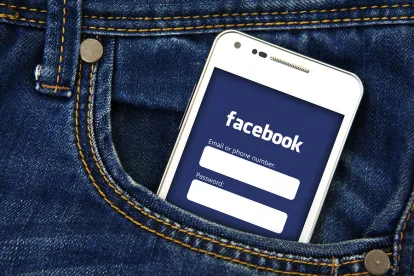This week, Facebook and the United States government filed responses to Plaintiff’s brief in Facebook, Inc. v. Duguid, the Supreme Court case that promises to resolve the circuit-splitting uncertainty over what does and does not qualify as an ATDS under the TCPA. The Plaintiff’s brief—which we covered here—argues that the adverbial phrase “using a random or sequential number generator” modifies the verb “to produce” but not the verb “to store” in the statute’s definition of an ATDS. See 47 U.S.C. § 227(a)(1). If the TCPA is interpreted in this fashion, liability could follow from using any device that can store and automatically dial a number—including, among other things, virtually every smartphone in use today.
In response to Plaintiff, Facebook and the government point out that reading the adverbial phrase (“using a random or sequential number generator”) to modify only one verb (“to produce”) creates an unnatural interpretation under which the preceding phrase (“telephone numbers to be called”) is nevertheless applied to both verbs. See Facebook’s Reply Brief at 3 (“Interpreting the direct object that follows “produce” to attach to “store,” but then reading the adverbial phrase . . . to attach only to “produce” . . . looks more like surgery . . . than interpretation.”) (citation omitted); Government’s Reply Brief at 2 (“[W]here a direct object (here, ‘telephone numbers to be called’) that is shared by both verbs is interposed between the verbs and the modifying [adverbial] phrase, construing the modifying phrase to apply to one verb but not the other would require a significant judicial re-write.”) (citation omitted).
In addition to these plain-text arguments, Facebook explains that a broad ATDS definition would have drastic implications for not only businesses but also consumers. For example, Facebook notes that, despite Plaintiff’s “assurances” about “the reticence of lawyers to sue ordinary smartphone users,” there has been “no comparable restraint in suing businesses.” Facebook’s Reply Brief at 24. Facebook continues by warning that an expansive reading would chill desired communications between customers and businesses that Congress sought to preserve: “A world in which businesses face crippling liability simply because they do not know when a customer’s cellular plan expires would have been unimaginable to the Congress that wanted to preserve legitimate business practices and disclaimed creating any barrier to the normal, expected or desired communications between businesses and customers.” Id. (citations omitted).
This round of briefing marks the final submission of briefs in this case before oral argument, which is set for Tuesday, December 8. We will report back after the argument.





 />i
/>i
